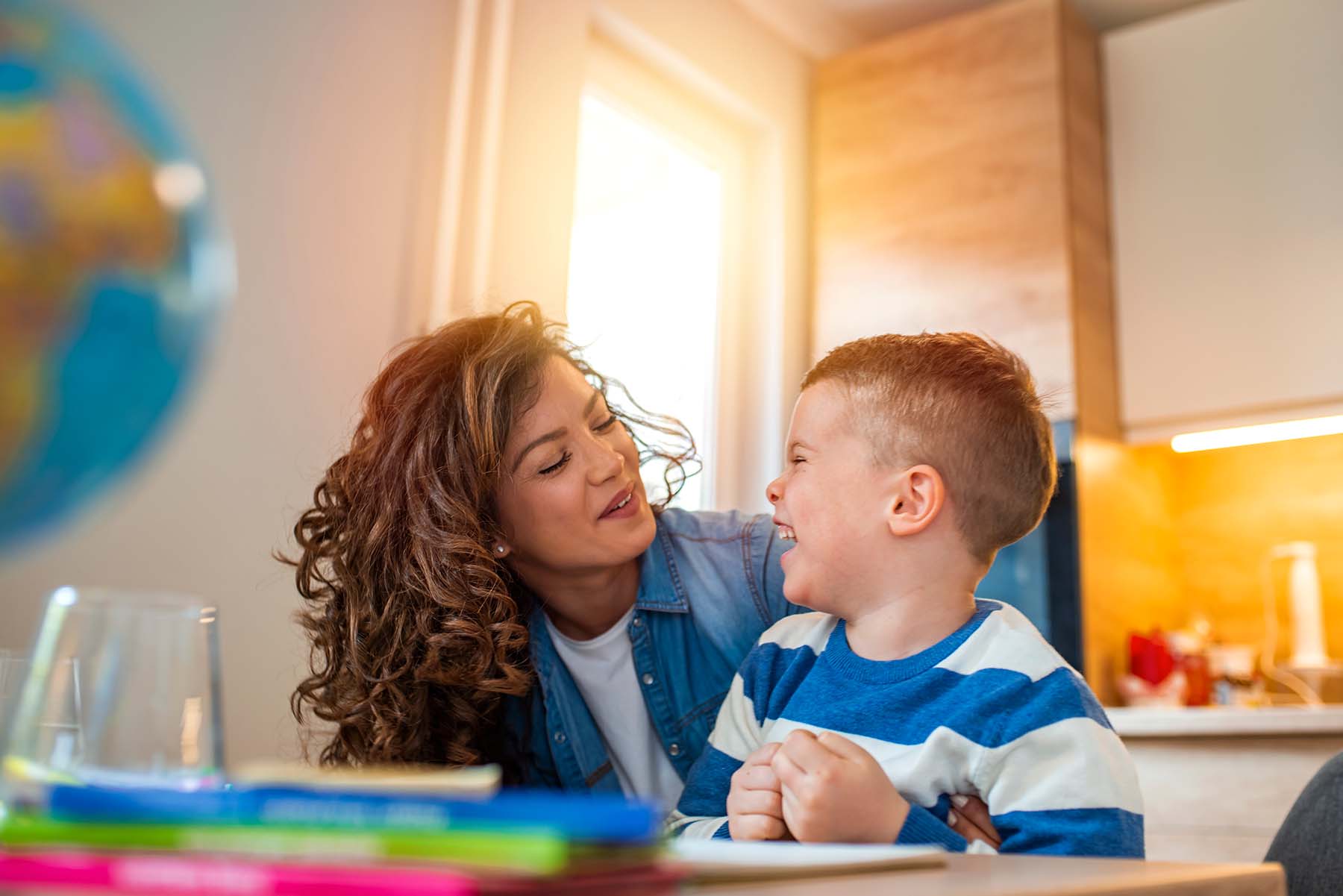How to Help Developmentally Delayed Kids Catch Up After the Pandemic

On-again and off-again school closings and remote learning made many children fall behind academically and developmentally. Children already coping with developmental delays faced an even bigger battle.
“Schools were intermittently open and had variable policies on shutdowns, creating inconsistent educational and therapeutic opportunities. This was difficult for kids with developmental delays who needed structure. A two-pronged challenge came from COVID: a larger proportion of delays than we’ve ever seen, and the mental health and academic services are overwhelmed with increased demand. Both kids and the system are struggling to catch up,” says Abigail Peskin, Ph.D., a psychologist at the University of Miami Health System.
Children from families where English is a second language face yet another hurdle. Professionals like Dr. Peskin are determined to help. And parents can follow her lead.
Working with your child’s therapist
Parents need to understand the context of their child’s therapy, be it occupational, speech, or behavioral, says Dr. Peskin.
“Parents don’t always know to support the learning at home, but the more people who can drive home the concepts – parent, teacher, therapist – the better.”
For example, a family whose child is in behavior therapy can work on the child’s language skills by using “high-frequency” words during playtime.
“If they are working on prepositions like ‘on, under, behind,’ I’ll have the parent use those words frequently in their play. For example, ‘I’m going to put the train on the table! You’re driving under the table! Now your train went behind the table!’ Using words in a context like this helps children learn them more quickly,” Dr. Peskin says.
Play with kids on their level.
During the shut downs, parents juggled multiple roles: parent, teacher, therapist, and playmate.
Dr. Peskin, founder of Play it Forward South Florida, encourages them to add other professionals to their team so they don’t have to carry all these roles. Yes, you can reinforce the concepts your child’s tutor or therapist is working on, but don’t try to become your child’s therapist.
“Kids learn by listening and watching parents; even if you’re not teaching, they’re learning and are willing to engage longer in things that are playful. Let kids explore and troubleshoot.”
How do you make sure your child gets the academic and emotional support they need at school?
It depends, says Dr. Peskin.
“Some teachers are more proactive than others. Open communication helps the teacher focus on how to best help your child.”
She encourages parents to proactively seek information about their children’s school performance.
“Ask specific questions. Instead of ‘How is he doing,’ provide an example, such as, ‘At home, I’ve seen that he has a hard time sounding out certain words. Are you seeing this in the classroom?’ And follow up with, ‘How can I help with this at home?’ Or you might tell the teacher that your child needs reminders. Focus on what your child needs to succeed instead of how he struggles.”
If children are delayed due to a lack of access to experiences, these children may be able to catch up once access to those experiences resume.
However, “If kids were already delayed before COVID, they may need more intensive treatment,” says Dr. Peskin. For example, parents may need to increase speech therapy sessions from one hour a week to three or four hours a week. Children with more “plasticity” or flexibility may bounce back quicker from the lack of social interaction imposed by the pandemic. Others might struggle.
Regardless of your child’s developmental issues, “Whoever you’re working with should provide active updates. Talk to the clinician or professional and ask if your child is making gains at the rate they need to be. If you’re working on the same goals for a year or more, you may need a different approach. You know you’ve made progress when you can move the goalposts,” says Dr. Peskin.
Look for the helpers.
To reach underserved communities in South Florida, Dr. Peskin and her colleagues collaborate with “natural helpers” who reinforce what children learn in therapy in between sessions.
“We recruit and train natural helpers in Parent Child Interaction Therapy (PCIT) to support families and translate therapeutic strategies to the home. They understand the community and the culture they’re working in and go into the home to help bridge the gap.”
PCIT uses evidence-based methods to treat children with emotional, behavioral, and social challenges. The helpers reach underserved communities where UHealth has clinics, such as Little Havana. It is designed for children from two to seven years of age.
Dr. Peskin also turns to technology to reach children in need.
Through telehealth video calls, “we’re starting to reach previously underserved communities and achieving promising outcomes. I’ve worked with families who aren’t familiar with telehealth or Zoom calls and had success.”
Though she believes the future of counseling will follow a hybrid approach between in-person and virtual sessions, she urges families not to rule out telehealth or any other resource that will help their children succeed in the classroom and in life.
To schedule a consultation, email PCIT or call 305-243-0234.
Nancy Moreland is a regular contributor to UMiami Health News. She has written for several major health care systems and the CDC. Her writing also appears in the Chicago Tribune and U.S. News & World Report.
Tags: child care, child development, covid-19 in Miami, kids activities, kids health, learning challenges
